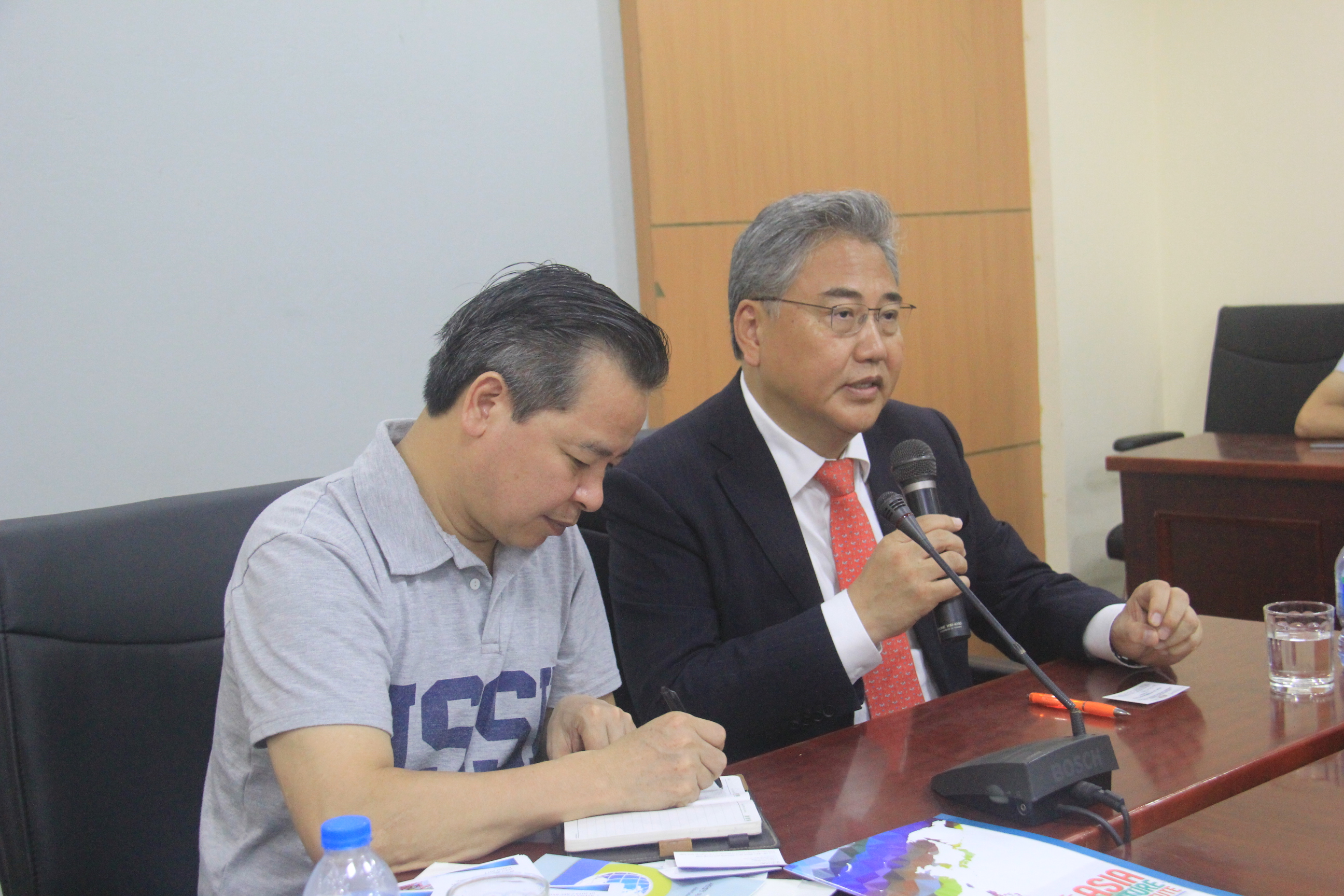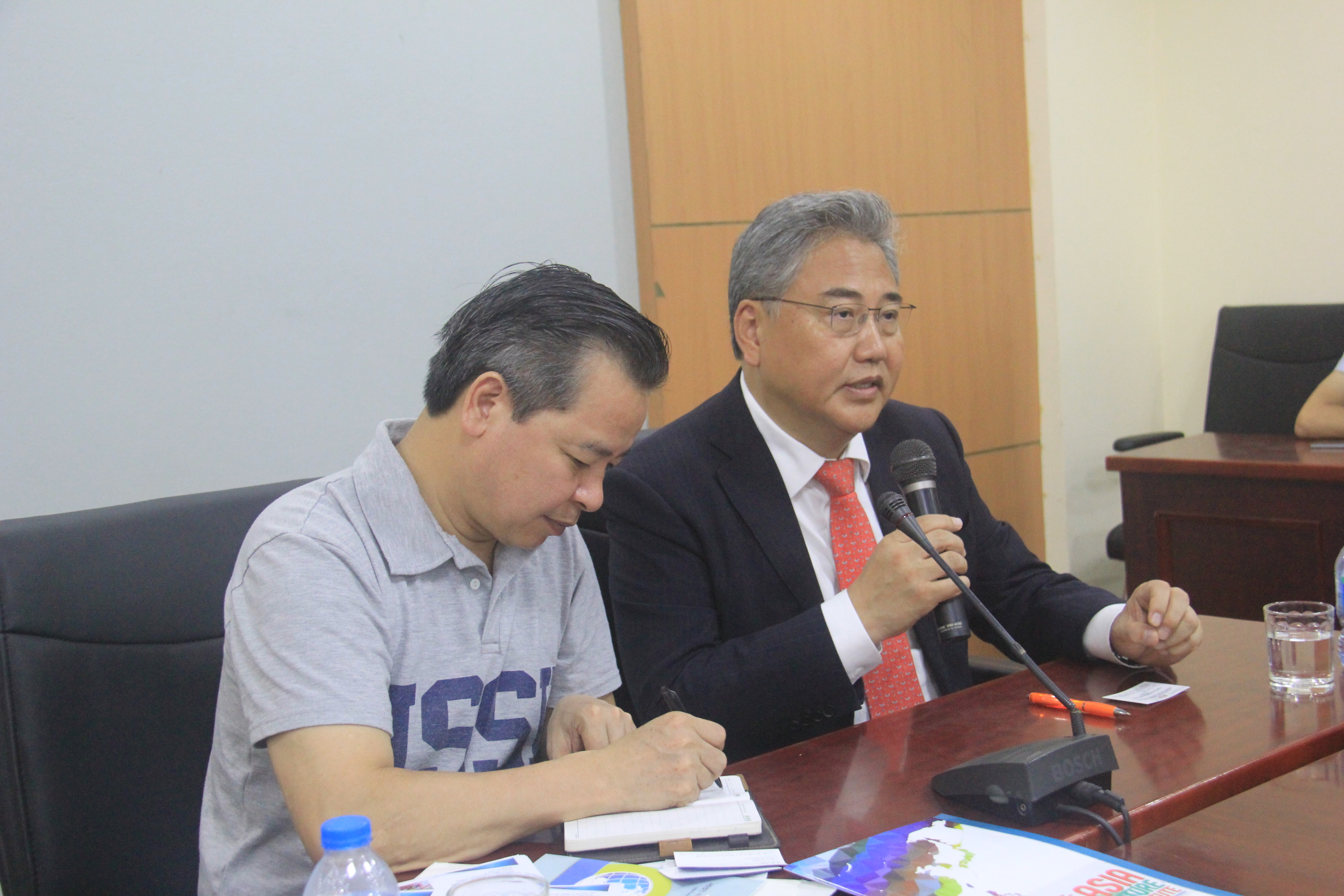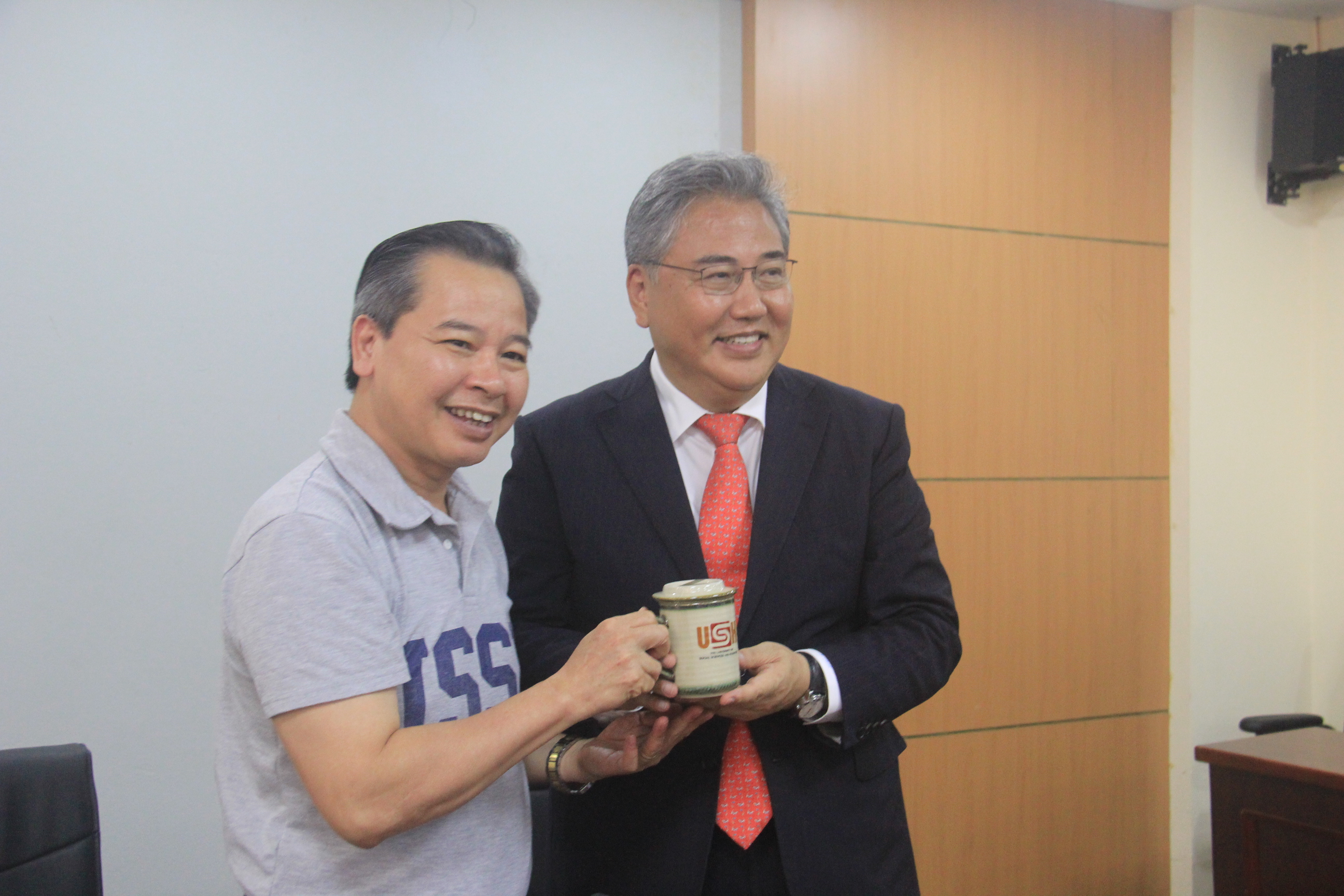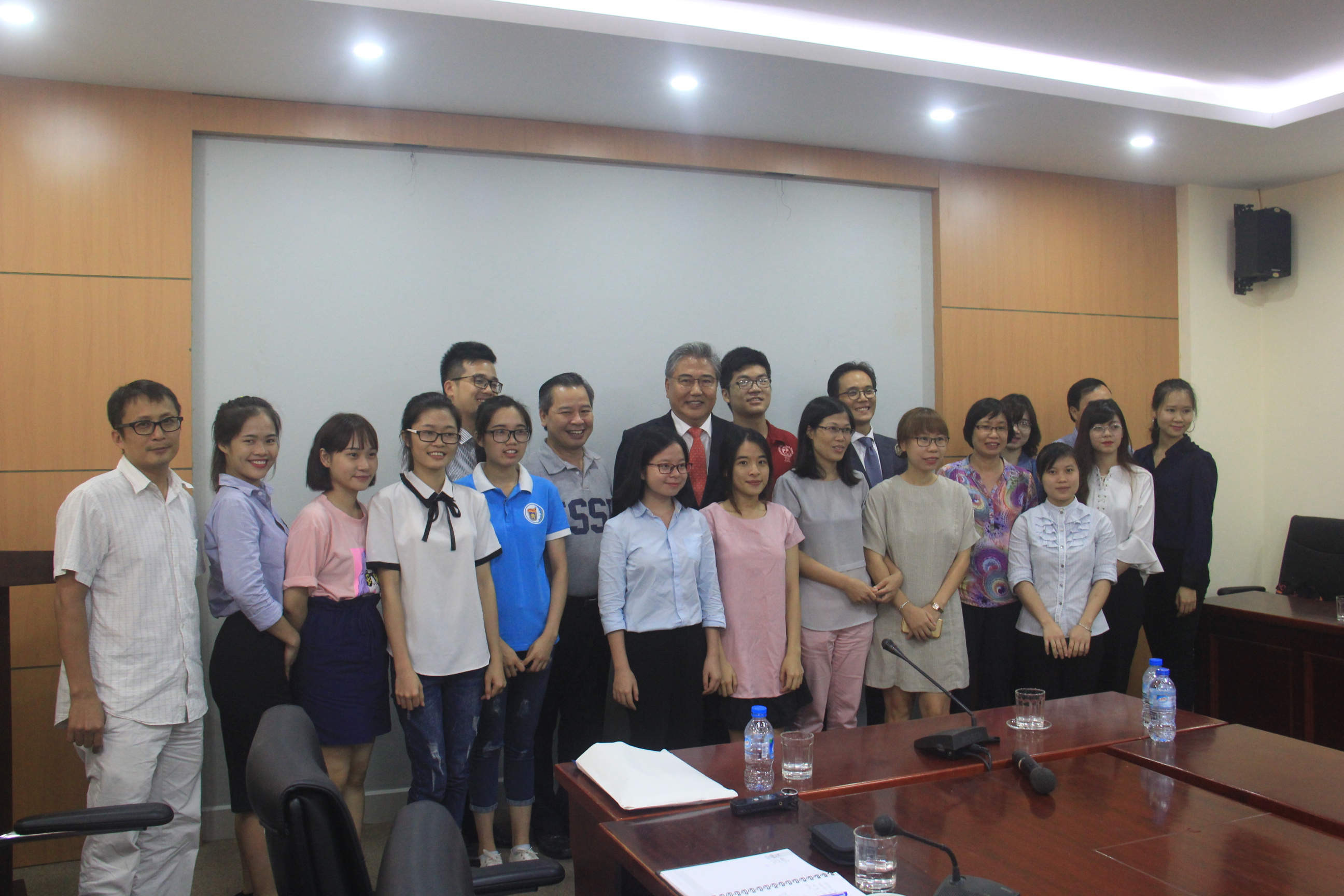
Prof. Dr. Jin Park began by assessing the importance of the Association of Southeast Asian Nations (ASEAN). ASEAN has a large population, of which 60% are working-age people; has abundant resources; is a gateway connecting East Asia with Eastern Europe/Middle East; has a great “centrality”; and especially, the ASEAN Economic Community (AEC) was established at the end of 2015 along with the AEC Blueprint 2025. ASEAN deserves to be a model of community integration that Northeast Asian countries can learn from. In fact, three countries, Korea, China, and Japan, have joined the ASEAN+3 mechanism.
Korea itself attaches great importance to its relations with ASEAN. ASEAN is Korea's second largest trade and investment partner, 60% of Korea's trade surplus comes from ASEAN, and ASEAN is also the second largest foreign construction market and the most frequent tourist destination for Koreans. The two sides signed the Free Trade Agreement (FTA) on June 1, 2007, and signed the Investment Agreement on June 2, 2009. In addition, the Korea-ASEAN Center was established on March 13, 2009 to build educational and cultural partnerships between the two sides. Prof. Dr. Jin Park hopes that bilateral relations will be expanded to the entire Northeast Asia, including China and Japan.

Similarly, Vietnam and Korea have great potential for development based on the inherent conditions of the two countries. Professor Jin Park compared Vietnam to 'Thang Long', with GDP growth of 6.6%/year and GDP per capita of 2245 USD (expected to be 6-7% and 3500 USD in 2020), with moderate and highly qualified human resources, political stability and security, and has signed FTAs with 53 countries. Korea is compared to 'Crouching Tiger', with estimated GDP ranking 7th in the world (in 2030), and a democracy ranked 22nd in the world. The two countries have maintained close political relations since the first visit of former President Do Muoi to Korea in November 1996; Economically, there are more than 6,000 Korean companies operating in Vietnam and Korea is the largest investor in Vietnam with a total investment value of up to 55 billion dollars; culturally, the two countries have interactions between art, literature, and cinema products, the most prominent of which is the phenomenon of "Korean Wave" in Vietnam. The friendly relationship between the two countries also contributes to the general relationship between Korea and ASEAN.
After the presentation, Prof. Dr. Jin Park received questions and comments from the staff and lecturers of the University on the following issues: the impact of the Korean Peninsula crisis on the Vietnam-Korea and Vietnam-ASEAN relations; Korea's investment priorities in Vietnam; challenges in the Vietnam-Korea relationship and solutions; Korea's future investment plans; Korea's expansion to other countries in Southeast Asia such as Laos and Cambodia. The questions were answered in detail and satisfactorily by Prof. Dr. Jin Park.

Prof. Dr. Pham Quang Minh presents a souvenir to Prof. Dr. Jin Park

Prof. Dr. Pham Quang Minh and staff and students of the School took a souvenir photo with Prof. Dr. Jin Park
The Asia Institute is a policy research institute in Seoul, founded in 2007 and originally run by the Solbridge School of International Business, Woosong University in Daejeon, South Korea. It has a diverse range of experts in the fields of politics, humanities and science, stakeholders from governments, international organizations and youth across Asia. The Asia Institute engages extensively with youth, pupils and students, affirming the need for youth participation in debates on education policy, international relations and climate change.
Author:Tran Minh
Newer news
Older news